We are constantly learning more about the role of genetics in autism, and, following an autism diagnosis, many families have questions about genetic testing. We have asked genetic counselor Hallie Andrew, MS, CGC, to help us answer some of the most common questions we hear about genetic testing.
Is there a genetic test for autism?
Many patients and families in the autistic community are already aware that the diagnosis of autism spectrum disorder (ASD) is made after a detailed evaluation with neurodevelopmental specialists. Genetic testing cannot diagnose someone with autism, but it could help a family understand how or why someone has autism.
For about 10%-20% of people with ASD, an underlying genetic cause can be found.
But the word “genetic” can mean a lot of different things! Sometimes autism can be from a large genetic change, like missing piece of a chromosome. Sometimes it can be a very small change, like a single letter difference in the DNA.
Why would I want genetic testing for my child with autism?
Finding a genetic cause for autism can help the healthcare team make better and more specific recommendations for that particular patient. We want all of our patients to have the support and services that are best for them as individuals so they can meet their greatest potential.
Even if a genetic diagnosis doesn’t change the patient’s medical management, many patients and families have reported benefit from simply having a name for something and better overall understanding.
Will genetic testing change treatment recommendations?
Sometimes, a genetic diagnosis helps us know if there could be other health problems that haven’t presented yet (i.e., heart conditions, hearing loss, seizures, and others). Screening for these issues through bloodwork and imaging may be added to the patient’s protocol.
Most of the time, the genetic diagnosis does not reveal any new health concerns but does help providers know what treatment for existing concerns would be best for that particular patient. If we find a genetic cause for autism, we can look to other patients with the same genetic diagnosis and ask, “What worked best for them?” For example, some genetic conditions related to autism have greater challenges with speech and communication, so those patients would need increased speech therapy or communication devices. Others may have greater challenges with motor skills, so those patients might need more physical therapy or supportive devices. In very rare cases there may even be treatment such as medications that can help improve symptoms or behaviors.
If I am interested, how do I get my child tested?
The best place to start is a baseline evaluation with your local geneticist. Your pediatrician, primary care doctor, neurologist or other healthcare provider can give you a referral to your local genetics doctor and genetic counselor. This initial visit usually lasts about 60-90 minutes and the team will discuss which genetic test they think is best to start with.
Many genetics providers now offer telemedicine visits or specialized environments that decrease sensory overload specifically for patients with autism.
What if the genetic testing shows no abnormalities? Does that mean my child’s autism is not associated with a genetic change? Does it mean my child does not have autism?
Surprisingly, the majority of patients with autism who undergo genetic testing have negative results (no known abnormalities). In these cases, we believe there is likely still a genetic cause for the autism, but the tests available today just weren’t able to find it. It could also be that the autism was caused by many factors working together such as genetics AND environmental factors.
Negative genetic testing does not rule out a diagnosis of autism. Instead, it indicates that science and medicine simply have a lot more to learn about autism.
Genetic medicine is constantly changing and improving. It is important to check in with your genetics team at least once per year to ask if there are any updates to previous tests or if new tests have become available.
What does genetic testing involve? How should I prepare my child for the appointment?
Genetic testing should only be ordered after a thorough evaluation with a genetics doctor. The genetics team will do a physical exam and will collect information such as the pregnancy history, birth history and developmental history. Most genetics providers will take a detailed family history. You should bring any relevant health records to your visit and be prepared to review testing that’s been done so far.
Genetic testing can be performed on a either a blood sample or cheek swab (also called “buccal”) sample. Most of the time, the sample will not be collected the same day as your visit, because genetic testing usually requires prior authorization by insurance companies. In some cases, the sample for genetic testing can be collected the same day as the visit. After meeting with the geneticist and genetic counselor, the healthcare team will discuss different options for testing and insurance coverage for these tests. If insurance does not cover genetic testing, there might be other options through self-pay or research testing.
How could my child have a genetic disorder, if no one else in their family has autism?
A lot of people believe the word “genetic” means it must be inherited or passed down from the parents, but this is not always true. Sometimes a genetic cause for autism runs in families, but many times it can be something new that happened in a child for the first time.
As a brief genetics review: humans have about 20,000 different genes. We usually have two copies of each gene, as they come in pairs: one from our biological mother, one from our biological father.
For recessive conditions, parents are usually carriers, which means they have one copy of the gene that is working, and one copy that is not working. If two people are carriers for the same recessive condition, there is a 25% chance with each pregnancy that both parents pass down their non-working copy of the gene, and that child with both non-working copies of the gene is affected. That means there’s a 75% for the same couple to have children who are unaffected, as long as they get one working copy of the gene.
For dominant conditions, only one copy of the gene needs to be non-working to be affected. Many cases of neurodevelopmental conditions such as autism occur due to a random mutation (or “spelling mistake”) that neither parent was a carrier for but happened as a new event in the child for the first time, right after the sperm and the egg came together. This is still considered a “genetic” disorder, even though it was not inherited.
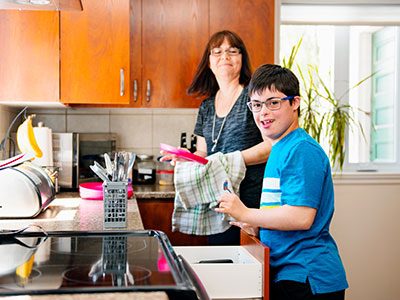 https://riseandshine.childrensnational.org/wp-content/uploads/2026/01/autistic-boy-doing-dishes-feature.jpg
300
400
webteam
https://riseandshine.childrensnational.org/wp-content/uploads/2017/11/childrens_riseandshine_logo.jpg
webteam2026-01-28 10:46:542026-01-28 13:09:53Supporting daily living skills in children with autism
https://riseandshine.childrensnational.org/wp-content/uploads/2026/01/autistic-boy-doing-dishes-feature.jpg
300
400
webteam
https://riseandshine.childrensnational.org/wp-content/uploads/2017/11/childrens_riseandshine_logo.jpg
webteam2026-01-28 10:46:542026-01-28 13:09:53Supporting daily living skills in children with autism


 Hallie Andrew, MS, CGC, is a genetic counselor at the Rare Disease Institute and Center for Genetic Medicine Research at Children’s National Hospital.
Hallie Andrew, MS, CGC, is a genetic counselor at the Rare Disease Institute and Center for Genetic Medicine Research at Children’s National Hospital.
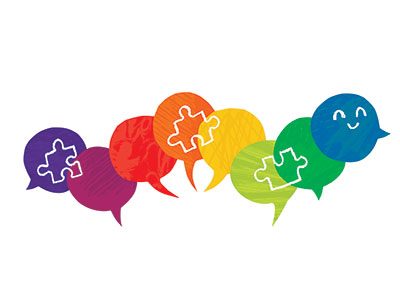
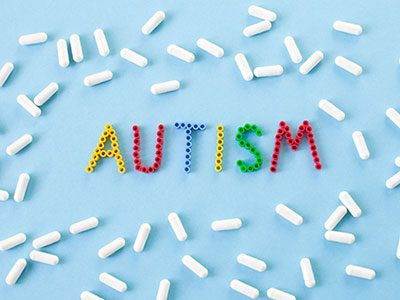







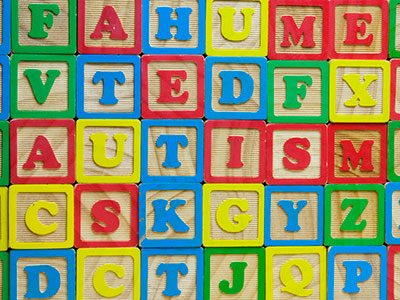

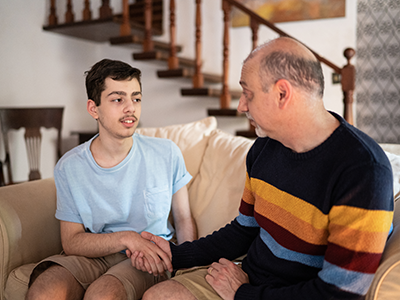





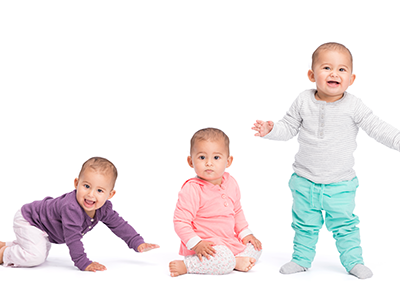
Leave a Comment
Want to join the discussion?Feel free to contribute!